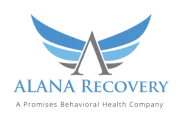Living with severe depression can be incredibly tough, but you don’t have to face it alone. At ALANA Recovery, we’re here to support you through the challenges of major depressive disorder (MDD) and other forms of depression. We believe everyone deserves the chance to live a healthier, more fulfilling life. Taking that first step to reach out can feel hard, but it’s also the most important one. If you’re struggling, we’re ready to help. Contact us today to learn more about how our depression treatment can guide you toward relief and a brighter path forward.
What To Know About Severe Depression
Major depression or major depressive disorder is more than just “feeling down.” It’s a debilitating condition that influences every aspect of daily life, from physical health to relationships. In 2021, MDD affected nearly 21 million adults—or a little over 8% of the adult population—in the United States.1 For those also managing substance abuse, the impact of depression can intensify, creating unique challenges that require specialized care.
What Is Major Depressive Disorder?
MDD is a type of depression characterized by persistent feelings of sadness, hopelessness, and a lack of interest or enjoyment in activities, even ones the individual used to love. These symptoms can make everyday life hard, affecting work, home life, and relationships.
Some common signs of MDD include:
- Feeling sad or hopeless most of the time
- Feeling drained or low on energy nearly every day
- Changes in appetite or weight
- Trouble sleeping—either not sleeping enough or sleeping too much
- Struggling to focus or make decisions
- Feeling guilty, worthless, or like a burden
- Having thoughts about death or self-harm
It’s important to remember that MDD isn’t a choice or a sign of weakness, and it’s not something you can just “snap out of.” Like any other illness, it needs support and care from kind and understanding professionals.
Can Major Depression Co-Occur With Addiction?
Yes, MDD frequently co-occurs alongside substance use disorders (SUDs). According to the Substance Abuse and Mental Health Services Administration (SAMHSA) ’s 2022 National Survey on Drug Use and Health (NSDUH), approximately 21.5 million adults in the United States have co-occurring disorders or a dual diagnosis of addiction and another mental health condition—such as depression.2
When someone is battling severe depression, they might turn to drugs or alcohol to cope. These substances can feel like a quick escape, numbing the pain for a little while—but in the long run, they often make things worse. It’s a tough cycle, and it shows why it’s so important to address both depression and addiction together.
At ALANA Recovery, we focus on treating the whole person. Our integrated approach helps uncover and heal the root causes of both struggles, giving people the support they need to move forward and truly heal.
Tips for Living With Severe Depression
While professional treatment is essential for managing severe depression, there are steps you can take to support yourself on your recovery journey. Every small action builds momentum toward lasting change.
- Build a support network – Reach out to the people you trust—whether family, friends, or a supportive group. Talk to them about what you’re going through and lean on them when necessary. You don’t have to face this alone.
- Take care of yourself – Try to eat balanced meals, move your body, and stick to a regular sleep routine. These small steps can make a big difference in helping you feel more grounded and steady.
- Be present – Practices like meditation, yoga, or even just taking a few deep breaths can help you feel more connected to the moment and ease some of your stress.
- Start small – Set manageable goals and break big tasks into smaller steps. Celebrate your progress, even if it’s something small—every step forward counts.
- Avoid quick fixes – It can be tempting to turn to alcohol or drugs to numb the pain, but they often make things worse. Focus on healthier ways to cope instead.
- Ask for help – Seeing a therapist, talking to a doctor, or exploring medication can be life-changing. Professional help is an important part of healing, and there’s no shame in seeking it.
Recovery takes time, and it’s not always a straight path. Be kind to yourself on the more challenging days and keep moving forward—you’re making progress, even when it doesn’t feel like it.
How Depression Treatment Can Help
Professional treatment provides the tools, support, and guidance needed to manage severe depression effectively. At ALANA Recovery, we work with clients to identify the factors contributing to their depression, develop healthier thought patterns, and create coping strategies for lasting relief.
Our approach often includes evidence-based therapies like cognitive-behavioral therapy (CBT) to address negative thought patterns that fuel depression. Medication management may also be incorporated to help regulate mood and alleviate symptoms when used alongside therapy. For those facing both depression and substance abuse, our dual diagnosis support ensures both conditions are treated together for meaningful, lasting recovery. While treatment doesn’t eliminate bad days entirely—something everyone experiences—it equips you with the skills and resilience to manage and reduce their impact.
Take the Next Step Toward Healing with ALANA Recovery in Georgia
Living with severe depression can feel overwhelming, but you don’t have to go through it alone. At ALANA Recovery, we’re here to walk this journey with you, whether you’re looking for help for yourself or someone you care about.
If you’re in Georgia and dealing with major depression, addiction, or both, we’re ready to listen and help. Taking that first step is never easy, but it could change everything. Reach out to learn how treatment can help you heal and find your way back to wellness and purpose. Contact our team online or call 770.759.7474 to start your recovery. We’ll help you see that brighter days are ahead.
Footnotes:

